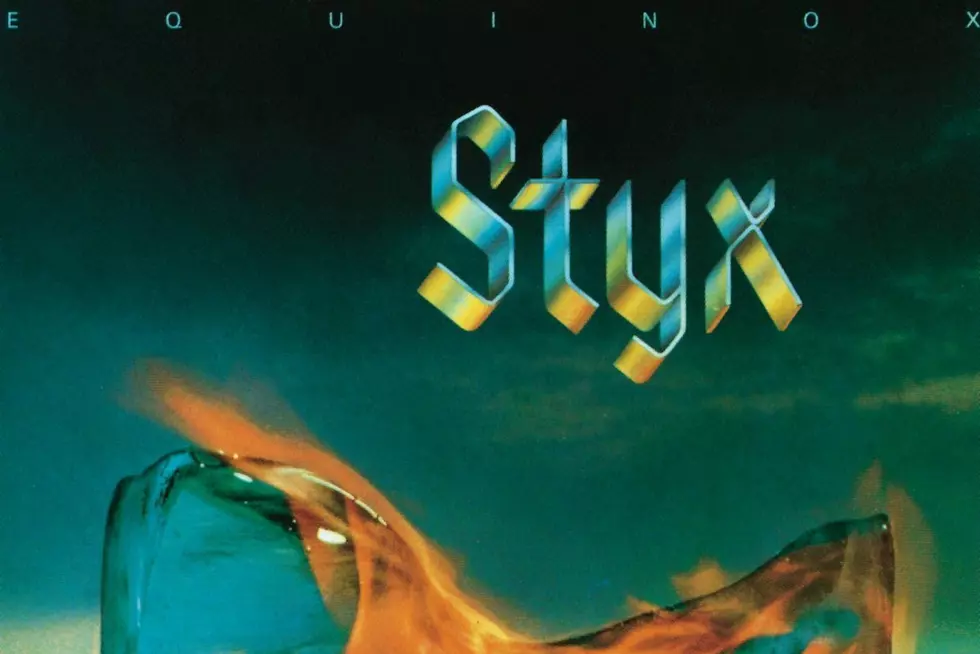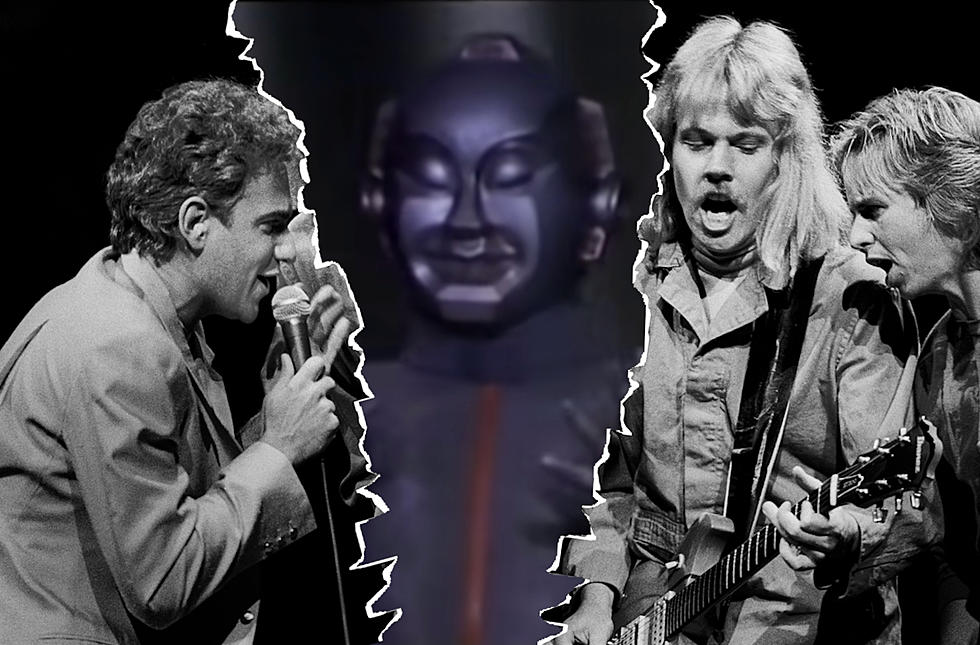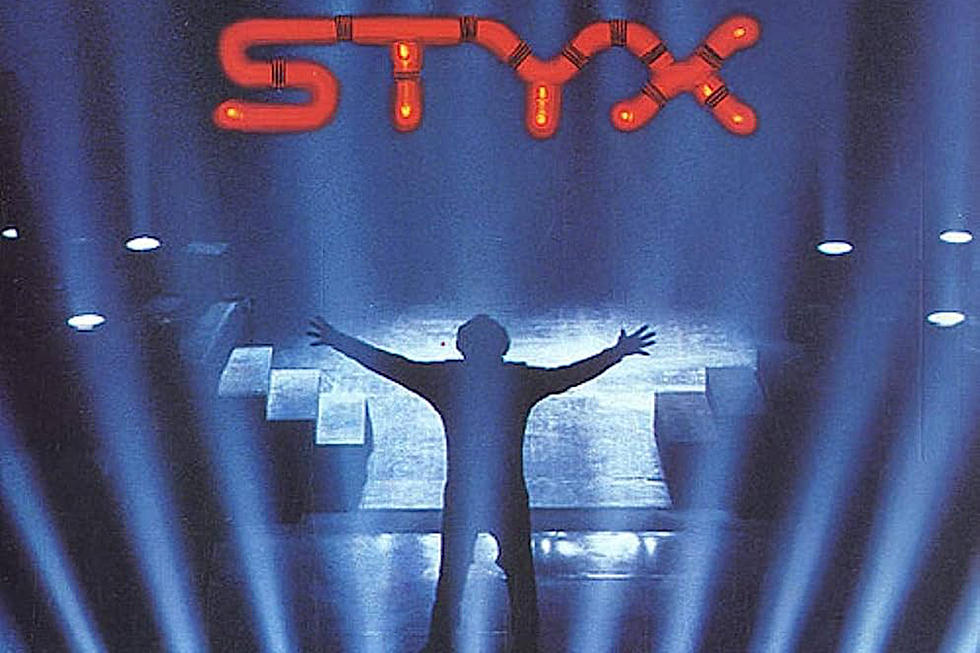
Why Styx’s Major-Label Debut ‘Equinox’ Is So Underrated
Styx's fifth album, Equinox, is the awkward middle child of the band's discography, falling somewhere between the prog-lite pomposity of their indie early material on Wooden Nickel Records and the more sculpted FM rock that packed arenas during their A&M days.
The 1975 LP also represents a pivotal transitional period for the Chicago band. They were just barely scraping by in the early to mid-'70s: Despite scoring a "hit" with 1972's "Best Thing" and cracking the Billboard 200 on a couple occasions, their first four LPs — Styx, Styx II, The Serpent Is Rising, Man of Miracles — largely flatlined outside their home city of Chicago.
Everything changed after they released Man of Miracles — but not because of its musical merits.
"When the fourth album came out, we went up to WDAI, which was in the same building as [radio station] WLS, to ask if they'd consider playing anything off the album," Dennis DeYoung told the Chicago Tribune in 1990. "Coincidentally, on a lark, we went to see WLS and Jim Smith, who was the program director. WLS then was the most powerful station in America."
They walked in and said, "'Hi, Jim, this is our fourth album," DeYoung continued. "The first single off it is such-and-such. Would you at least listen to it, and if it ever gets to the point where you think you could play something, we'd come and wax your car or take your garbage out. He said: 'No, I won't play anything off this record, but I'll tell you what I'm going to do: Tonight at 8 o'clock on John Landecker's show, we'll play "Lady." And I'm going to play it once a night until it's a hit record.'"
It worked: Two months after its initial release, after consistent radio play, "Lady" shot to No. 6 on the Hot 100. Their signature power ballad helped Styx score a contract with A&M, leading to higher expectations for Equinox, their major-label debut.
Listen to Styx's 'Lorelei'
The album melds disparate sides of the Styx sound: the propulsive and the proggy, the campy and the catchy. They layer opener "Light Up" — a thinly veiled ode to the devil's lettuce — with squealing synthesizers and harmonized guitar riffs, but they also make room for handclaps and congas in a dorky breakdown.
Those extremes are often segregated into different tunes — both straightforward rockers ("Lorelei," the by-numbers "Midnight Ride") and artful epics (future live staple "Suite Madame Blue," the very Yes-like "Mother Dear"). They even sneak in another power ballad that comes off like a "Lady" sequel: "Lonely Child," with DeYoung adopting his theatrical vibrato over cascading 12-string guitars.
Styx didn't set the world on fire with Equinox: "Lorelei" mustered a respectable No. 27 showing as a single, but the LP stalled at No. 58. Still, it kept the engine running. Guitarist John Curulewski left afterward, leading to the hiring of Tommy Shaw — a capable singer-songwriter and hitmaker who achieved a delicate balance of power with DeYoung during the band's prime run.
These days, the million-selling Equinox tends to get overlooked in the band's oeuvre: It's not as flashy or famous as late '70s classics like The Grand Illusion or Pieces of Eight. Yet DeYoung placed Equinox at No. 4 overall when ranking Styx's catalog. "It rocks and had our most important rock song to date, 'Suite Madame Blue,'" he later enthused. "It made us stars and headliners in Canada, giving us our first platinum album."
Even Shaw, who wasn't around to record it, noted his love for the project in an interview with UCR. "Our favorite Styx sound is that era around The Grand Illusion and Pieces of Eight," he said in 2017, while promoting the band's The Mission. "And Equinox too. … Side Two of Equinox, I think, is highly underrated."
Rock's 100 Most Underrated Albums
Real-Life ‘Spinal Tap’ Stories: Styx
More From Ultimate Classic Rock









